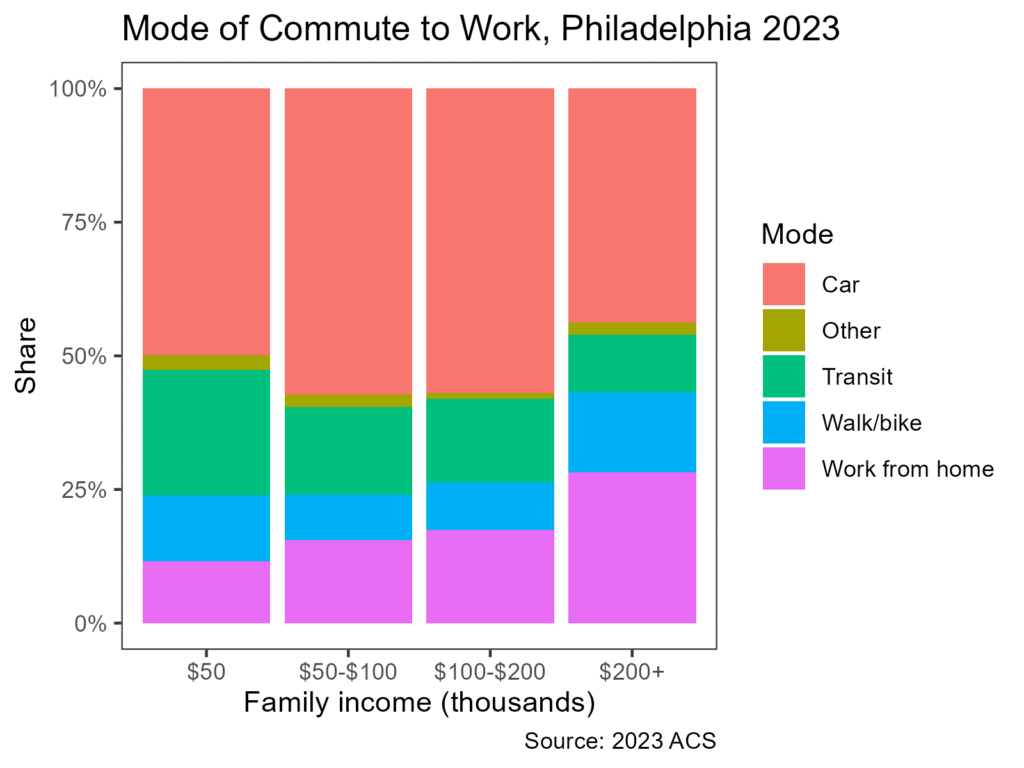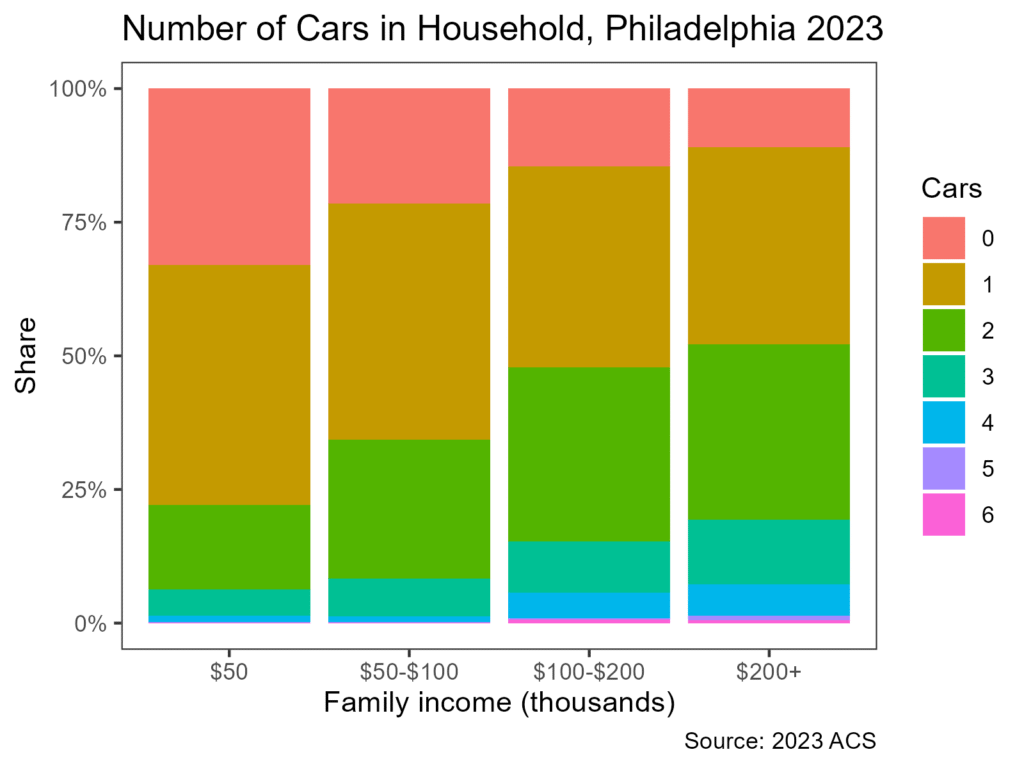Philadelphia’s main transit agency, the Southeastern Pennsylvania Transportation Authority (SEPTA) is facing a financial cliff. On July 1st, SEPTA will cut service by 45% if state lawmakers do not provide additional funding. Bus routes and regional rail routes will be eliminated, stations will be closed, fares will be raised, and frequencies will be reduced. At the risk of stating the obvious, this would be devastating to the Philadelphia metro region. In 2024, SETPA was the seventh busiest public transit agency in the country, with over 213 million rides, per data from the National Transit Database.
To get a better picture of how much Philadelphians rely on SEPTA, I looked at data from the 2023 American Community Survey, which asks respondents about their method of getting to work. About 200,000 people in the Philadelphia metro region rely on public transit for work. While not all of that is SEPTA, the vast majority is. In Philadelphia itself, about 126,000 of the city’s 730,000 workers use public transit to get to work.
Cuts to SEPTA would almost certainly hit the poorest Philadelphians the hardest. Almost a quarter of employed Philadelphians in families with incomes under $50,000 use public transit to get to work, compared with about 11% of those in families with incomes greater than $200,000.

Of course, not all trips on public transit are related to work, so these estimates do not capture fully the importance of SEPTA. Looking at things another way, right now Philadelphia is a relatively easy city (by American standards) to live in without a car. Almost a quarter of Philadelphians live in households with no cars, and another 42% live in households that only have one car. If SEPTA reduces its service and the remaining service becomes less reliable, people will inevitably have to rely more on cars. That will mean more traffic, more pollutants, and higher costs for families. Again, this would disproportionately affect poorer people, who are much less likely to own a car.

Despite the disparate impact SEPTA cuts will have on low-income families, SEPTA is a vital service for Philadelphians across the socioeconomic spectrum. It is the backbone of one of America’s great cities. It’s how people get to work, visit friends, go to baseball games, and more. It is imperative that Pennsylvania lawmakers not let SEPTA fail.